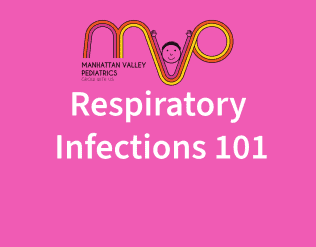Stress is part of daily life no matter one’s age, and children and teens are not immune. With each passing year, life seems to move faster and become more complicated. The stakes seem to get higher, and even mundane activities become competitive amongst peers and on social media. We might ask ourselves, “if progress is meant to make life easier, then why does our anxiety increase with the modernization of our culture?”
It is incumbent on parents and caregivers to be aware of the pressures on our children and their anxiety levels. We also need to monitor our own anxiety and avoid passing our fears to our children. It is imperative to observe when stress becomes overpowering, making it difficult for a child or teen to cope with their daily routine.
The COVID-19 pandemic was unexpected and destabilizing, bringing enormous stress to families and children. Even as adults, we felt unprepared. For kids, it was unprecedented and confusing. Continued disruptions to routines and potential health concerns for ourselves and others were overpowering for many. Some children experience illness or the loss of a loved one. This cultural trauma might have laid a foundation for our young people to feel vulnerable, fearing dangers such as another pandemic might be lurking in the future.
Signs of Stress in Kids
Children are not small adults. They often have not developed coping skills the way adults have. They react to stress differently from adults. Parents need to be attuned to these nuances. For example, children and teens often express anxiety by having strong emotional and angry outbursts, crying spells, and rebellious stands. They could have problems falling or staying asleep. They may refuse to see friends or to join social or sports activities. They may spend too much time on social media, worried about the content they see. They may overeat or restrict food and could experience physical ailments such as headaches, stomach upsets, joint pains,
and nausea. Finally, teen stress can trigger potentially destructive behavior such as drinking and drug experimentation. Academics may deteriorate, and children and teens might refuse to attend school. Fortunately, as a parent, you can help to lower the stakes and emphasize that even the most overwhelming and stressful situations can be de-escalated and improved.
When to Seek Professional Help
First, ask yourself some basics. Does your child get good nutrition, sleep, exercise, and have supportive familial and social relationships? Do they have someone non-judgmental to talk to? Do they fill their free time with things they enjoy? These are some of the many beneficial activities they can engage in. Alternatively, potential problems arise if they watch too much news and are exposed to excessive violence in media and video games. This could produce sensory overload and cause them to feel unnecessarily stressed and worried.
Next, think about your child’s academic life and extracurricular activities. Are they
over-scheduled? Are they being bullied? Is there an undiagnosed learning disability, or is the curriculum too hard? Have you seen a sudden fall in performance or problems with attendance? Think about your own home. Is there too much arguing between parents? Siblings? Does your family look different from those around you? Remember, above everything, children, especially teens, want to fit in and look like everybody else. Do any of the scenarios above sound familiar? If so, it might be time to seek professional help to have another ear to listen to them.
Professional Tips on How to Reduce Stress for Kids
If you are concerned about your child’s mental health, in addition to seeking professional help,
here are some tips and recommendations that may reduce stress.
- Try to establish routines to provide consistency at home.
- Set limits on screen time. Monitor and discuss what your children watch and how they feel about it.
- Try to share activities that bring pleasure, relaxation, and satisfaction.
- Get out in nature.
- Sit down together with your children often and talk during dinners, walks, and drives. Communication is key.
- Try to find laughter and humor in your daily life and activities.
- Find creative ways to meditate and practice deep breathing together. For example, teach your child to take deep breaths for 5 seconds, hold for 5, and then release it for 5.
- Emphasize that talking about their stress aloud can help process and normalize it.
- Never make your children feel ashamed of their fears and worries. Instead, commend them for their
bravery in talking about personal challenges. - Teach them that our humanity lies in our
vulnerability, and only by sharing our feelings can we grow closer and form deeper




